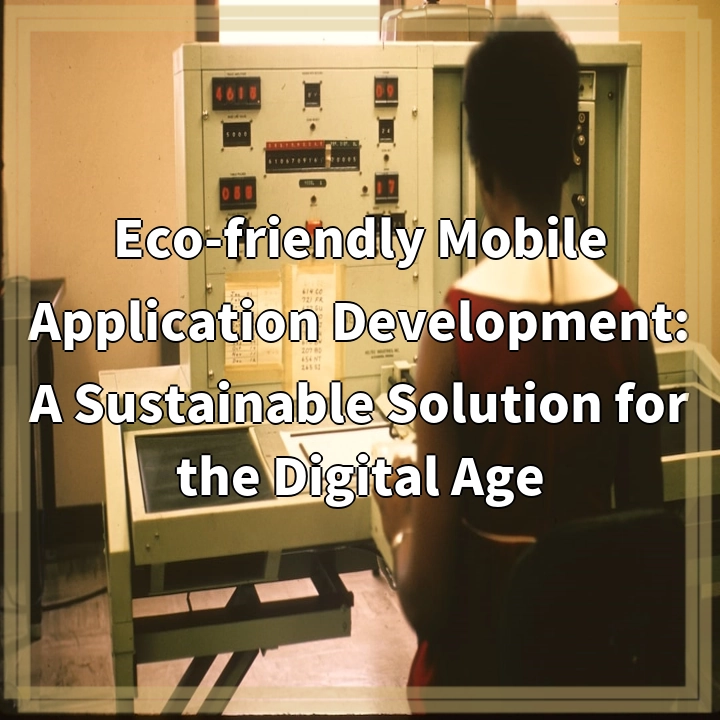Physical Address
304 North Cardinal St.
Dorchester Center, MA 02124
Physical Address
304 North Cardinal St.
Dorchester Center, MA 02124

Eco-friendly Mobile Application Development refers to the process of creating and designing mobile apps with a focus on minimizing their environmental impact. By addressing real-world problems associated with mobile apps’ environmental impact, this sustainable approach strives to provide innovative and efficient solutions for users.
Eco-friendly mobile application development addresses several pressing environmental issues:
Traditional mobile apps often consume substantial amounts of energy, contributing to the carbon footprint of devices and data centers. This excessive energy consumption leads to higher greenhouse gas emissions and drains device batteries quickly, resulting in increased electricity consumption.
The rapid growth of the mobile app industry has led to a rise in electronic waste (e-waste). Discarded smartphones and other mobile devices contribute to harmful waste streams, as their components contain toxic materials that can pollute soil and water if not properly disposed of or recycled.
Mobile apps rely on data centers for storage and processing, which consume vast amounts of energy. These centers require cooling systems, often powered by fossil fuels, to maintain the optimal temperature for servers. Optimal design and optimization of apps can help reduce the load on data centers and minimize their environmental impact.
Mobile app development involves the use of various hardware components, such as servers, smartphones, and tablets. Ensuring the sustainability of the supply chain is crucial, as the extraction of raw materials, manufacturing processes, and transportation contribute to greenhouse gas emissions and environmental degradation.
Addressing the real-world problems associated with mobile apps’ environmental impact requires implementing sustainable solutions throughout the development process:
Developers can optimize mobile app code to minimize energy consumption by reducing unnecessary background processes, using efficient algorithms, and employing device power management techniques. This not only improves app performance but also extends battery life and reduces overall energy usage.
Adopting sustainable design principles, such as minimalist interfaces and intuitive user experiences, helps create apps that are resource-efficient and have a smaller environmental footprint. Additionally, employing dark mode and adjustable screen brightness settings can further reduce energy consumption.
Utilizing cloud computing services and optimizing data center operations can greatly reduce the energy consumption associated with app storage and processing. Migrating data and functions to the cloud, leveraging virtualization, and implementing server cooling and energy management strategies can help minimize the environmental impact.
Encouraging users to recycle their old mobile devices and partnering with e-waste recycling programs can help reduce the impact of electronic waste. App developers can also educate users on responsible disposal methods for their devices to prevent them from ending up in landfills and contribute to pollution.
Collaborating with suppliers and manufacturers who prioritize sustainability practices, such as responsible sourcing of materials and eco-friendly manufacturing processes, can ensure that mobile app development supports a more sustainable supply chain.
By implementing these solutions, eco-friendly mobile application development can contribute to mitigating the environmental impact of mobile apps while still providing innovative and user-friendly experiences.
Eco-friendly Mobile Application Development offers a sustainable solution for the digital age, addressing environmental challenges and fostering a more eco-conscious approach to mobile app development.
If you’re wondering where the article came from!
#